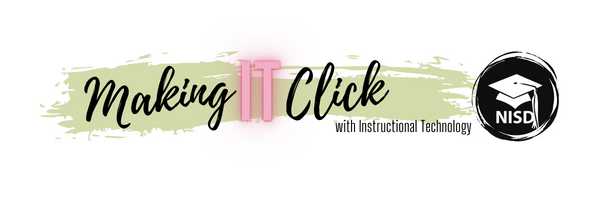Mrs. Swearingen, Mrs. Franco, and Mrs. Ahmad , all fifth grade teachers at Sendera Ranch
Elementary, know the power of feedback and praise. They wanted their students to experience
learning about Jamestown in a new and exciting way. Mrs. Swearingen contacted an eighth
grade teacher, Mrs. Kristen Mouser from Wilson Middle School. The two teachers began to
brainstorm to take the learning outside the four walls of the classroom.
First, the students in fifth grade classes were presented with the two learning targets for this project.
- I will analyze a DBQ document, so I can answer the question, “Why did so many colonists die?”
- I am successful when I can write a paragraph to explain my thinking.
Immediately students went to work and created a collaborative slideshow to brainstorm
questions they wanted to know about Jamestown. The next day, students found out
Mrs. Swearingen and Mrs. Mouser had set up a time for the eighth graders and fifth graders
to Zoom to have conversations. Zoom is a web-based tool that allows anyone to
virtually connect and host a video web conference.
A few days later students began to write their paragraphs using Google Docs. Using Google Docs allowed communications and collaboration for students to receive comments
and feedback from their peers.
“I liked reading what the 8th graders said. They had some good ideas of how to make my DBQ
better.” said Brooke
“It was fun to see the 8th graders and hear what 8th grade was like and what an 8th grade
DBQ was like. They do it a lot faster than we do.” stated Logan
Research supports the value of peer collaboration and discussion across all content areas and
concepts. By providing students the opportunity for peer feedback on their writing, students
were able to offer one another constructive critique in order to improve their own communication
skills. Extending, receiving, and evaluating feedback is a critical skill for all 21st Century Learners.
sciences.
- 1b. build networks and customize their learning environments in ways that support the learning process.
- 1c. use technology to seek feedback that informs and improves their practice and to demonstrate their learning in a variety of ways
- 2b. Students engage in positive, safe, legal and ethical behavior when using technology, including social interactions online or when using networked devices.
3. Knowledge Constructor - Students critically curate a variety of resources using digital tools to construct knowledge, produce creative artifacts and make meaningful learning experiences for themselves and others.
- 3a. Students plan and employ effective research strategies to locate information and other resources for their intellectual or creative pursuits.
- 3b. Students evaluate the accuracy, perspective, credibility and relevance of information, media, data or other resources.
- 3c. Students curate information from digital resources using a variety of tools and methods to create collections of artifacts that demonstrate meaningful connections or conclusions.
- 3d. Students build knowledge by actively exploring real-world issues and problems, developing ideas and theories and pursuing answers and solutions.

No comments:
Post a Comment
Note: Only a member of this blog may post a comment.